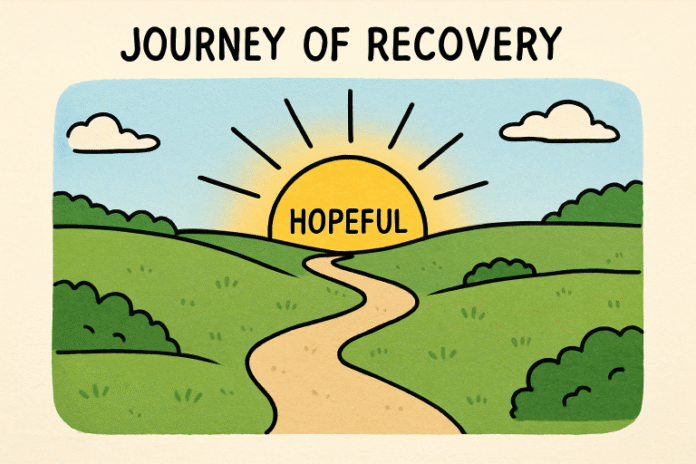Table of Contents
Key Takeaways
- Sustainable recovery involves ongoing lifestyle changes, support, and awareness.
- Holistic strategies—including therapy, social connection, and healthy habits—boost chances of long-term sobriety.
- Professional and community resources offer valuable support throughout the recovery process.
- Stigma, relapse, and mental health challenges are common but manageable with the right tools and support.
- Self-care, goal-setting, and accountability create a strong foundation for lasting change.
What Makes Recovery Last?
Recovery is an evolving journey that requires dedication, resilience, and the willingness to embrace change. Achieving sustainable recovery means laying the groundwork that involves not just cessation of substance use but also nurturing overall well-being. For those seeking support, professional resources are essential in establishing a strong start and maintaining progress. If you’re looking for practical, evidence-based approaches to support long-term sobriety, find out more now about programs that make a lasting difference.
The key to lasting recovery is incorporating a range of supports that address not only physical withdrawal but also the mental, emotional, and social aspects of healing. Insights from the National Institutes of Health underscore that integrated support—combining therapy, medical care, and lifestyle adjustments—delivers the best results for the long haul. Successful recovery involves creating a purpose-filled life, healthy relationships, and regular self-reflection.
Steps to a More Resilient Recovery Process
- Create a support network: Engaging with trusted friends, supportive family members, and recovery groups can offer encouragement and reduce feelings of isolation. Leaning on others in challenging moments is a crucial protective factor against relapse.
- Establish healthy routines: Consistency is key in recovery. Regulating sleep, eating nutritious meals, and incorporating physical activity contribute to physical and emotional stability. Routine helps anchor your progress as you build new habits.
- Set realistic goals: Breaking recovery into manageable steps and celebrating small victories boosts confidence and can reignite motivation during hard times. Progress at your own pace and recognize each milestone along the way.
- Practice mindfulness: Tools like meditation, deep-breathing exercises, or journaling build emotional resilience. Mindfulness fosters awareness and helps in managing cravings, anxiety, and negative thought patterns.
Common Challenges and How to Overcome Them
Encountering obstacles is a regular part of recovery. Many face social stigma, misunderstanding from others, or personal struggles like cravings and mental health challenges. Overcoming these barriers often requires proactive engagement with professional support, peer groups, and educational resources. Early intervention—such as reaching out to a counselor or joining a group—is linked with better outcomes, according to the Substance Abuse and Mental Health Services Administration (SAMHSA). Developing a relapse prevention plan and being open about your struggles can dramatically decrease the chances of setbacks derailing your progress.
Mental Health as a Recovery Partner
Caring for your mental health is an integral part of lasting sobriety. Those in recovery often experience co-occurring conditions like anxiety, depression, or trauma, which can trigger relapses if left unaddressed. Effective recovery integrates mental health care through therapy, medication management if appropriate, and daily self-care routines. Making mental wellness a priority means learning new coping skills, seeking professional support, and maintaining open communication with trusted individuals. For more on managing mental health during recovery, this guide from Psychology Today provides actionable advice and resources.
The Power of Community and Connection
Recovery thrives in an environment of connection, empathy, and support. Building relationships with others who share similar experiences helps combat isolation and provides valuable encouragement. Support groups offer a safe space to share victories and challenges openly. Attending regular meetings, engaging in community activities, or volunteering can reinforce positive behaviors and develop an accountability network. This sense of belonging reminds you that you aren’t alone—others have walked the same path and can inspire what’s possible.
Sustaining Recovery in Everyday Life
Integrating healthy changes into daily routines is one of the strongest predictors of sustainable recovery. This may involve developing new hobbies, pursuing further education or career goals, or exploring creative outlets that spark fulfillment. Accountability structures, such as scheduled check-ins with a sponsor or continued therapy sessions, reinforce a sense of stability and purpose. Consistently making time for self-reflection and recognizing growth helps turn new behaviors into lifelong habits.
Addressing Relapse Without Shame
Relapse is not uncommon and should be treated as a challenge to learn from, not a sign of failure. Normalizing this possibility allows individuals to address setbacks proactively. Understanding personal triggers, creating safety plans, and having supportive allies in place can help minimize the impact of a relapse. Above all, the willingness to return to recovery strategies and ask for support when needed keeps long-term goals within reach. Education from trusted organizations, like the Mayo Clinic’s drug addiction resource, can offer a valuable perspective and tips for turning setbacks into growth.
Moving Toward a Healthier Future
Sustainable recovery is a marathon, not a sprint. Each proactive step—seeking support, building resilience, or simply believing in the possibility of change—brings you closer to lasting wellness. When you commit to holistic strategies and embrace the resources available, you lay the groundwork for a life that’s not just free from substances but also rich in meaning, stability, and genuine connection. Let every day be a step toward a brighter, healthier future rooted in self-care, community, and hope.
Apart from that if you want to know about “Empowering Recovery: Physiotherapy Insights from Edmonton” then please visit our Health Category.























